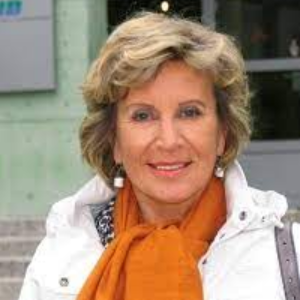Abstract:
Nowadays tumour heterogeneity is becoming recognized not only at phenotype, but also at molecular level, is dictating patient’s specific response to therapy, and in future the treatments have to become more individualized to increase patients’ survival. However, the cells of different cancer subtypes, even within a single tumour, are differentially affected not only by therapeutics, but also by various stromal cells, comprising heterogeneous tumour microenvironment. What is the final decision of the communication among various cancer cells and among the inter-tumour cells’ cross talk, is hard to predict. The aim of this presentation is to illustrate the diverse response of different GBM cell subtypes to the normal bone - marrow derived mesenchymal stem cells (MSC). To elucidate the direct interaction between bone marrow-derived MSCs and two distinct GBM cell lines, U87 and U373, we tested cells’ invasion in vitro, as well as in vivo, using zebrafish embryo model (3). Since proteases are crucial for GBM cell invasion, we focused on their role in invasion of cells in MSC/GBM direct co-cultures by analysing their expression at gene and protein levels and by applying selective protease inhibitors in the 3D-invasion model in vitro. We demonstrated that the effect of MSC/GBM cellular cross-talk on GBM cell invasion is GBM cell type specific. Namely, MSCs decreased the invasion of U87 cells, whereas they increased the invasion of U373 cells in vitro and in vivo. In contrast, both GBM cell lines increased the invasiveness of MSCs upon direct interactions. Moreover, we observed that increased U373 cell invasion in co-cultures correlated with increased expression of cathepsin B, calpain1, uPA/uPAR, MMP-9 and -14, all involved in the protease signalling cascade in GBM cells, leading to increased invasion via extracellular matrix degradation. Using selective inhibitors, we confirmed involvement of cathepsin B, MMP-9 and -14 in MSC-enhanced invasion of U373 cells. By contrast, decreased invasion of U87 upon co-culturing seemed to be independent of these proteases, implicating that the MSC regulatory potential in MSC/GBM co-cultures is dependent on GBM phenotype. Finally, we identified the genes, associated with cell response to TGF-ß that were differentially expressed in U87 vs U373 cells that could explain different response of these cell lines to MSCs. Taken together, our findings are the first to suggest that the response of GBM cells to MSCs depends on the cancer cells’ genetic subtype. This notion may be generalized to other types of stromal cells as well as to other tumours.




